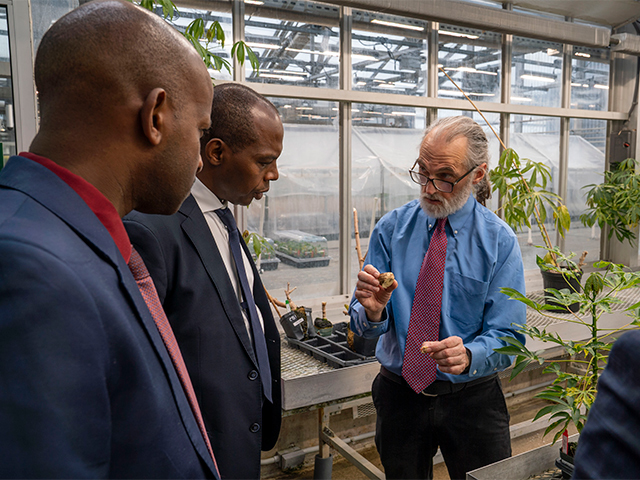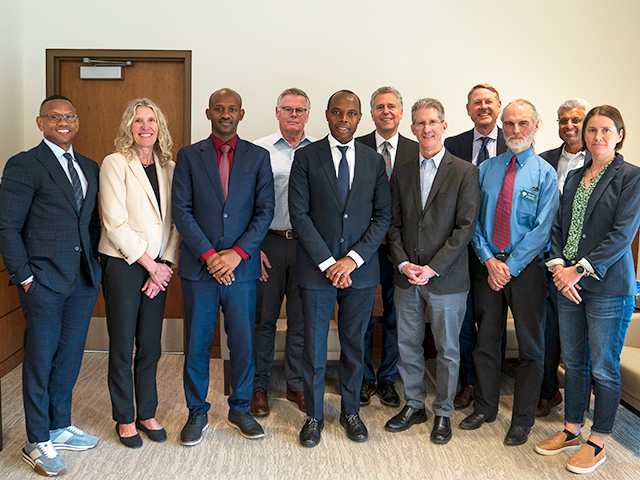Economic Growth through Plant Science Innovation
Danforth Center Scientists recently shared an overview of our plant science research aimed at sustainable crop improvement with the Honorable Francis Gatare, cabinet-level head of the Rwanda Development Board and Ronald Mutabazi, first counselor Commercial Affairs, the Embassy of Rwanda in the U.S. As leader of the agency that oversees the national economy of Rwanda, Francis Gatare has a mandate to accelerate and enable Rwanda’s economic development through private sector growth, including improving agricultural economic development by increasing the productivity of crops.
Rwanda is the most densely populated country in Africa. Ninety percent of employment comes from the food and agricultural sector, which accounts for 35% of Rwanda’s gross domestic product.
In 2019, colleagues at the Rwanda Agricultural and Animal Resources Development Board (RAB, the national agricultural research organization) joined Virus Resistant Cassava for Africa (VIRCA), an effort led by Nigel Taylor, PhD, with support from the Bill & Melinda Gates Foundation and USAID to address the major virus diseases affecting cassava productivity in East Africa.
Given that earnings from cassava exports declined by 40% due to Cassava brown streak virus between 2016 and 2017 in Rwanda, there’s a great need for resistant varieties. The VIRCA project goals in Rwanda include testing performance of recently developed varieties in field trials, training scientists, obtaining approvals, registering improved varieties, delivering seed to smallholder farmers, and training entrepreneurs.

Nigel shares details about our research with the Rwandan delegation in the greenhouse
One of the biggest challenges to delivering virus-resistant cassava in target geographies, like Rwanda, is the lack of effective, sustainable seed distribution systems. There are no companies to scale-up planting materials, steward varieties, and sell improved cassava seed to farmers. To reach 90% of the 700,000 cassava farmers in Rwanda, the VIRCA team is helping develop and train 250 Cassava Seed Entrepreneurs (CSEs) who will multiply, quality-assure, and sell cassava seed to farmers. The CSEs will build private businesses that serve an unmet need and provide a source of income. In partnership with Rwandan entrepreneurs, developing private-sector cassava seed systems that are economically sustainable is now one of the top objectives of VIRCA.

From left, Rodney Boyd, Karla Roeber, Counselor Ronald Mutabazi, Don MacKenzie, Francis Gatare, Donn Rubin, Jim Carrington, Tim Nowak, Nigel Taylor, Vijay Chauhan, Becky Bart